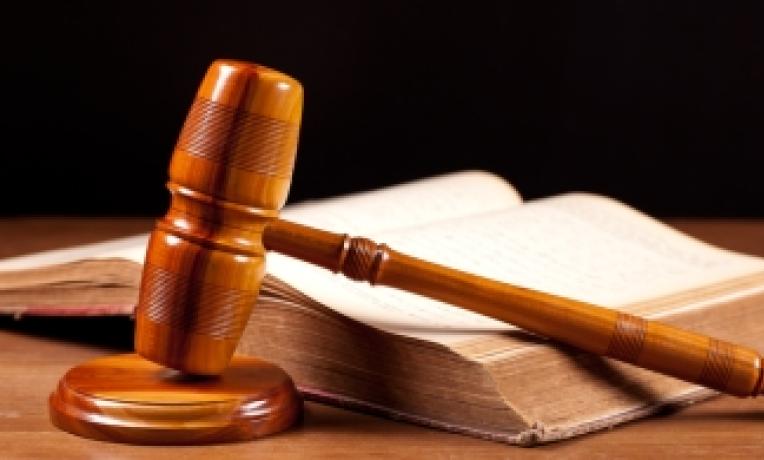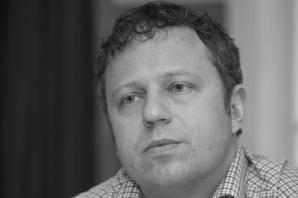Testimony on Human Rights Law
December 10 has become a landmark for all human rights’ defenders. It is the day when the international community celebrates UN Human Rights Day to mark the adoption of the Universal Declaration of Human Rights in 1948. A research project led by ERC grantee Professor Lauri Mälksoo, based at the University of Tartu (Estonia), illustrates the significance of human rights in today’s global context by looking at precisely how countries like Russia, understand and practice international law.

Awarded an ERC Starting Grant in 2009, Prof. Lauri Mälksoo has emerged as one of the leading younger voices from Eastern Europe in the field of international law. His scholarly work focuses on the intersection between human rights law and theory in Russia, and on the country’s general understanding of international law. Prof. Mälksoo argues that: “The West and Russia seem to put a different emphasis on the importance of human rights law in the general edifice of international law.” He added: “To put it bluntly, the West sees human rights at least as equal to the principle of State sovereignty whereas Russia clearly favours State sovereignty over human rights. This difference in thinking creates tensions in practice, in particular in the Council of Europe but also in the United Nations where the connection between massive violations of human rights and potential use of military force against the violator is being contested.”
According to Prof. Mälksoo, Human Rights is a very popular topic in global scholarship, but Western academics tend to overlook post-communist Russia in human rights law and theory. He believes that this may have linguistic and cultural reasons and insists that the study of post-communist Russia may give us important insights about whether illiberal states actually think and behave differently in the normative sphere than - liberal ones.
Looking back at Russian international law history, Prof. Mälksoo said that “Russia lost its connection with Western legal thinking during the Communist period. There were hopes that Russia would return to the European family of nations when it ratified the European Convention on Human Rights in 1998 and accepted the jurisdiction of the European Court of Human Rights. But the devil is in details, and the understanding and application of human rights law in Russia needs a thorough and honest stock-taking.”
Rather than collecting an endless amount of facts to demonstrate the dynamic of the Russian approach to major multilateral treaties, rulings of the European Court of Human Rights or jurisprudence of the International Court of Justice, Prof. Mälksoo favours an unconventional method which combines classical international legal research with detailed empirical evidence, such as elements of international relations, political theory and historical research.
For Prof. Mälksoo, this unusual approach should help us in “getting Russia right”: “A realistic assessment of Russia’s doctrine and application of international law would ultimately contribute to the mutual understanding between Russia and the West”. He added: “The innovativeness of this project lies in bringing together different disciplines, various camps and opinions, including those of Russian judges, politicians and academics, in order to get a wider scholarly perspective. The process of getting to know these opinions better also changed my perspective.”
Asked about the recent sentencing of the “Pussy Riot” punk band, Prof. Lauri Mälksoo responded that “such cases are just the tip of the iceberg”; the key questions being the changing role of the Russian Orthodox Church in Russian society and how it relates to the secular European notion of human rights.
Prof. Mälksoo is optimistic that the results of his five-year project will be relevant for understanding how states interpret liberal ideas when they engage in democratic reforms. He welcomed the “ERC goes global” campaign and conveyed a positive message to his Russian and Estonian counterparts: “Although ERC schemes are highly competitive, they provide extraordinary opportunities if you are awarded the grant. There seems to be a historical pattern in Russian legal scholarship that focuses on positivist research, i.e. research which describes facts rather than challenges them. It seems to me that the ERC emphasizes fresh and cross-disciplinary perspectives. With my grant, I now have the possibility to carry out ‘high risk’ research, open up and formulate previous questions differently”.
As regards ERC funding, he stated: “There are currently very few grants that combine generous funding with significant prestige, so I strongly encourage excellent researchers to apply. I think that ERC grants are truly meaningful, particularly for scholars working in countries that are somewhat peripheral in the global production of knowledge and ideas like Estonia”.
After receiving his ERC grant, Prof. Mälksoo was appointed by the University of Tartu as a Member of the Council of the newly-created Centre for EU-Russia Studies (CEURUS) and head of the Institute of Constitutional and International Law. In September 2012, he was re-elected for four years to the executive board of the European Society of International Law (ESIL).


